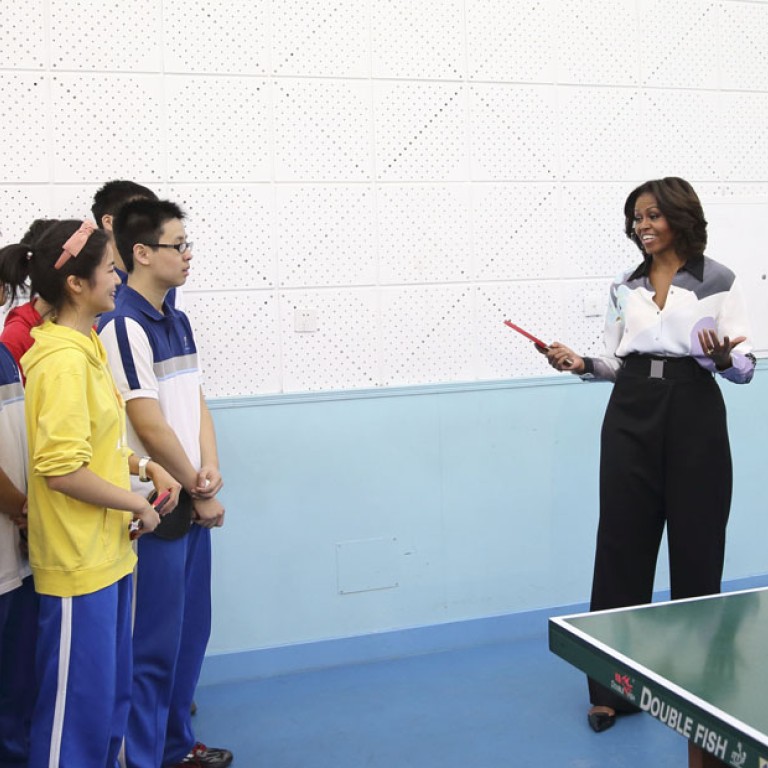
Overseas study offers young education on foreign policy
Sending students to schools abroad is just as vitally important to mainland China's interests as attracting more talents from the US
US first lady Michelle Obama is absolutely right about the importance of overseas education, and that is exactly what the sons and daughters of many former and current mainland leaders have already experienced or are eager to experience.
Obama just forgot to mention that in her speech at Peking University.
Speaking at the prestigious institution on Saturday, Obama said overseas education would allow students from the United States and China to gain a better understanding of the host country and could help convince them that the success of each country was linked with that of the other.
She cited examples of ordinary Americans and Chinese who went to the other country on scholarships for studies and research.
A day after her speech, the ran a report, citing Obama, headlined: "Studying abroad remains vital ingredient of US foreign policy".
It can be argued that studying abroad is also vitally important to China's interests, which I strongly believe to be the case.
Education becomes a means of learning much more ... when one studies in another land
The US is, of course, a popular destination for overseas education by "princelings" - the sons, daughters, grandsons and granddaughters - of senior Chinese officials.
Former premier Wen Jiabao's son, Winston Wen Yunsong, received his master's degree from Northwestern University in Chicago.
Former president Jiang Zemin's grandson Jiang Zhicheng studied at Harvard University for his bachelor's degree. The list goes on.
If the top leaders had such confidence in the US educational system, that is a convincing endorsement indeed.
Apart from sending its citizens abroad to study, the US may well have an interest in attracting international students, including talented young Chinese, as part of its foreign policy. I am sure China would also encourage more US students with an interest in Chinese history and culture to study in the country.
Education becomes a means of learning much more than the subject matter of textbooks when one studies in another land.
When President Xi Jinping's daughter, who is believed to be studying at Harvard, goes home to visit her parents, of course she will tell them what she saw, felt and understood about the US.
Maybe it is not too far-fetched to think that this kind of family table talk might have some impact on China's foreign policy towards the US.
The president of Peking University told Obama during her visit to one of the oldest and most influential academic institutions on the mainland that the university would be happy to enrol her two daughters if they were interested in studying in China.
In the old days, when China was ruled by chairman Mao Zedong, Chinese officials often sent their children to Russia to study.
Now the US is definitely the first choice. So, from the personal perspective of today's Chinese leaders, if merely in their role as parents, which country is more strategically important to China in the long run? Russia or America?
You know the answer.

